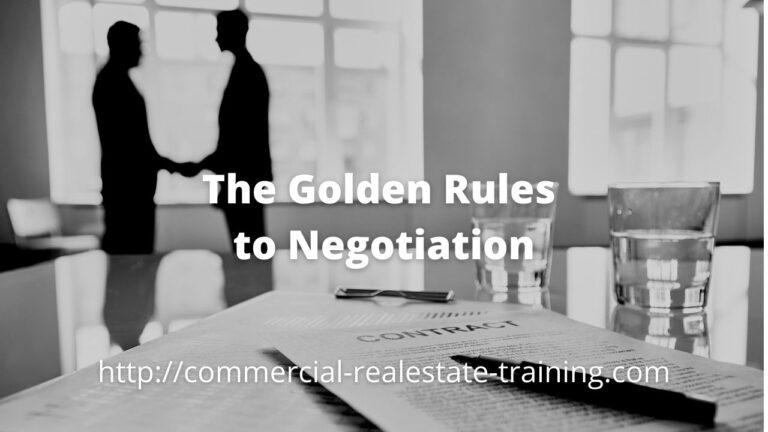Simple Steps to Solving Your Negotiation Problems in Commercial Real Estate
There are all types of negotiation pressures that we move through every day. Commercial real estate brokerage is full of decisions and discussions. Many people have fixed views on desired outcomes when it comes to property. It directly follows that we all should be refining and practising our negotiation skills on a regular basis.
Why is that? Well, the property market changes through the year for starters; there are also different motivations and targets for people as they move through leasing and sales decisions. Think about the ‘stages’ of a property transaction and what challenges occur.
These are some of the main negotiation stages of a real estate transaction that we must consider and work with. You can practice and prepare for all these things to lift your conversions:
- Talking to new people to find property listing opportunities and pressures
- Moving a conversation to a meeting with a prospect
- Explaining the property market and seeking information
- Inspecting a property to get all relevant detail from the owner
- Asking for a listing and associated marketing
These are just the first stages of a property ‘engagement’. You can improve your conversations, offerings, and negotiation skills with each element of that ‘engagement’. That’s what ‘top agents’ do. Are you ready for some deliberate and direct negotiation improvement?

Key Negotiation Skills for Brokers
Here are some ways to solve your negotiation problems and improve the outcomes on a regular basis:
- Ask for elaboration on any points or questions. That elaboration process will help you get more facts from the other party, and then you can find the ‘doorway’ to resolve things more easily.
- Keep a record of all key discussions, directions, and decisions. That will involve emails, written notes, correspondence, and telephone calls. Keep good quality records so there can be no disagreement about what was said and what was decided. When in any doubt, ask more questions.
- Isolate your opinions to avoid conflict. Let the other parties see the reality of their situation and their decisions. This negotiation then is not about you and your opinions, so don’t let the transaction get personal. Help all people in the transaction move towards available outcomes by guiding them and the conversations.
- Gather the facts about the property, the location, the marketing, the property market, and the people involved before you enter a negotiation or discussion on key points. The deeper and more relevant your information, the easier it is to get to ‘common ground’ and a positive outcome.
- Seek opinions on key points. People always have opinions about a property situation and discussion. Their opinion may give you leverage to moving successfully through a lease or sale situation.
- Understand your client’s position. When you do that, you can move them through some concepts that may be existing ‘hurdles’ in moving ahead.
- Review the targets of the parties involved. Your client’s targets should be your targets; however, the realism of the property market and the condition of the property will have an impact on negotiation progress. You may need to get some market evidence to help your clients understand what ‘variables’ exist in the local area in a property transaction.
- Establish some minor closes to move to the end outcome. In most sales and leasing negotiations, the ultimate decisions will be made by the people involved, but that is once they get through several smaller decisions and compromises. Break down the bigger decision into a series of stages that you can show people and provide information about.
Through all these steps in negotiation, you can practice your skills and your focus. Control the real estate negotiation based on real and accurate information from the property market and the property. Reach agreements in a personal and professional way.
How long can it take to get a decision from some people in a commercial real estate transaction or negotiation? Sometimes days or weeks. As a property professional, you can prepare for the process of negotiation optimisation and outcome control.






